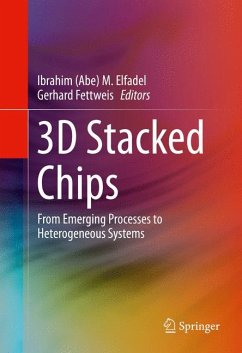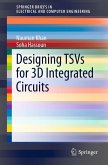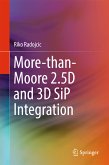This book explains for readers how 3D chip stacks promise to increase the level of on-chip integration, and to design new heterogeneous semiconductor devices that combine chips of different integration technologies (incl. sensors) in a single package of the smallest possible size. The authors focus on heterogeneous 3D integration, addressing some of the most important challenges in this emerging technology, including contactless, optics-based, and carbon-nanotube-based 3D integration, as well as signal-integrity and thermal management issues in copper-based 3D integration. Coverage also includes the 3D heterogeneous integration of power sources, photonic devices, and non-volatile memories based on new materials systems.
.Provides single-source reference to the latest research in 3D optoelectronic integration: process, devices, and systems;
.Explains the use of wireless 3D integration to improve 3D IC reliability and yield;
.Describes techniques for monitoring and mitigating thermal behavior in 3D ICs;
.Includes discussion of 3D integration of high-density power sources and novel NVM.
Dieser Download kann aus rechtlichen Gründen nur mit Rechnungsadresse in A, B, BG, CY, CZ, D, DK, EW, E, FIN, F, GR, HR, H, IRL, I, LT, L, LR, M, NL, PL, P, R, S, SLO, SK ausgeliefert werden.









